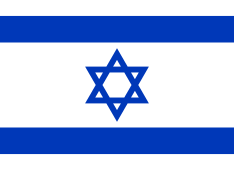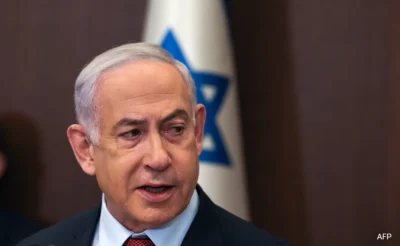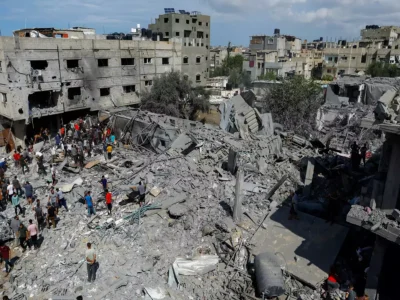Israel Defends Itself Against South Africa’s Genocide Accusations
Israel has firmly declared its intent to contest the allegations leveled against it at the International Court of Justice (ICJ) by South Africa, which accuses Israel of committing “genocidal” acts in Gaza.
The tension has escalated with both nations preparing for a legal showdown at the highest United Nations (UN) court.

Israel is fighting back against claims of genocide by South Africa.
Representing Israel, Eylon Levy sternly addressed South African leaders, cautioning that history would pass judgment on their actions without mercy.
He condemned the accusations as an “absurd blood libel,” rejecting the claims outright.
Prime Minister Benjamin Netanyahu went a step further, countering South Africa’s allegations by asserting that it was, in fact, Hamas perpetrating genocide.

Benjamin Netanyahu
The legal dispute comes as a response to South Africa filing a case at the ICJ, stating that the country is obligated “to prevent genocide from occurring.”
In a comprehensive 84-page document submitted to the ICJ, South Africa claims that Israel’s “acts and omissions” possess a “genocidal character” with the apparent intent to destroy a significant part of the Palestinian national, racial, and ethnical group.
As the case is scheduled to be heard on January 11 and 12, South African government lawyers are gearing up for a complex legal battle at the Hague-based ICJ.
This development unfolds against the backdrop of an existing ICJ investigation into Israel’s actions initiated by the Palestinians.
The focus of the probe is on the “prolonged occupation, settlement, and annexation” of Palestinian territory.
The legal confrontation further amplifies the ongoing tensions between Israel and Palestine, with South Africa taking a bold stance against what it perceives as genocidal actions.
The ICJ proceedings are expected to shed light on the intricacies of the allegations and the international legal implications surrounding the conflict.

Support for South Africa’s legal action has surfaced within the country, particularly from the United Ulama Council of South Africa, representing the nation’s Muslim community.
Expressing unequivocal support for the move, they highlighted the sanctity of life across religions and condemned the war crimes committed against the innocent population of Palestine.
In a powerful statement, the Council drew parallels between South Africa’s historical struggle against apartheid and its current stance against global injustice.
The Council stands in solidarity with the Palestinian people, emphasizing the urgent need for international recognition and action to address what they term the Israeli genocide.
“The South African Government’s bold stance is unique in the global arena and demonstrates unwavering support for the Palestinian cause and, by extension, oppressed people worldwide,” the Council asserted.
Drawing inspiration from South Africa’s history of overcoming colonial oppression and apartheid, the Council emphasised the importance of challenging persistent injustice through international law and human rights advocacy.
They firmly believe that, just as apartheid fell in South Africa, injustice anywhere in the world must be confronted and overcome.
The call for global recognition and action against the alleged Israeli genocide echoes through the Council’s statement, emphasizing the collective responsibility to uphold human rights and work towards a world where individuals can live with dignity and without fear.
The South African Government’s position receives resolute backing from the Council, urging faith-based and civil society formations to support the morally justified stance against genocide.
What this means for Israel
The complex legal proceedings at the ICJ are anticipated to have broader implications for the ongoing Israeli-Palestinian conflict and may set important precedents in international law.
Also Read: NSFAS Aims for To Pay Outstanding 2023 Disbursements
